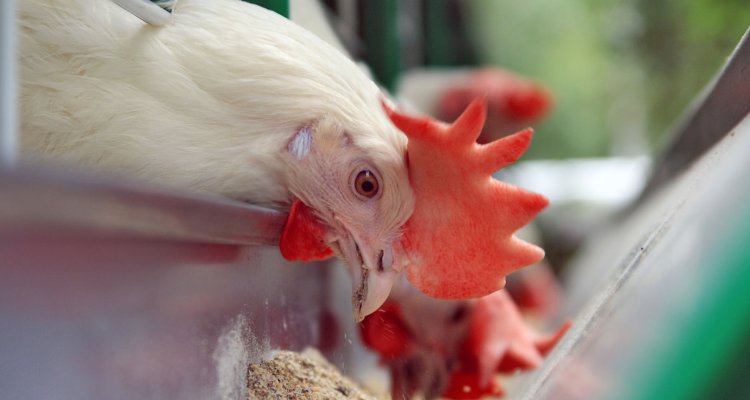
Project
HeatSense: Data-driven climate change adaptation in poultry
Climate change, especially heat waves, can negatively impact poultry, now and in the future. This project investigates short- and long-term data-driven solutions for climate adaptation, through the development of an automated cooling system based on bird behaviour and investigation of between-individual heat stress response differences, to assess potential for breeding for heat tolerance.
A changing climate
Climate change, and especially high ambient temperatures and heat waves, can lead to heat stress in poultry. Heat stress can have negative consequences for the birds’ health, welfare and performance, and can be observed through, for example, increases in water intake, decreases in feed intake and increases in mortality. In this project, we will investigate data-driven solutions for a more robust and sustainable poultry production in a changing climate.
Short-term solutions for heat stress
Changes in behaviour may be seen already before the declines in health and production start to be visible in poultry. Therefore, behaviour has great potential for early detection of heat stress. In this project, we will develop a proof-of-principle for a real-time early warning system for heat stress in poultry, based on automated detection of changes in behaviour. These automated detections of changes in behaviour will be used, alongside indoor and outdoor climate condition recordings and short-term weather predictions, as input for a prototype smart barn cooling system, that responds to the behaviours shown by the birds and is energy efficient.
Adapting to heat stress in the long term
In this project, we will furthermore examine individual differences in production and behavioural responses of laying hens to heat stress. Insight into individual differences in heat tolerance, and the heritability of heat tolerance, can help to determine whether breeding for improved heat tolerance is feasible. In this way, this project hopes to contribute to a reduced negative impact of high ambient temperatures on poultry, both now and in the future, through short-term (early detection and intervention) and long-term (breeding for heat tolerance) solutions.